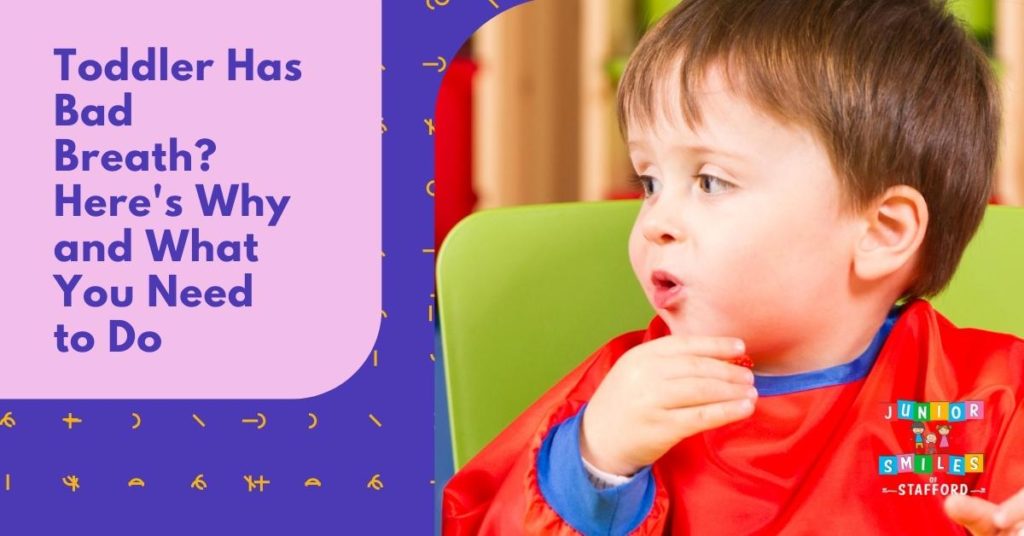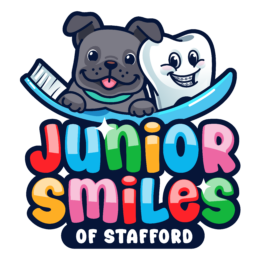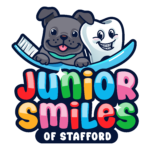Toddler Has Bad Breath? Here’s Why and What You Need to Do

Everyone has a morning breath, even toddlers. However, if the morning has passed and you can still sense the unpleasant smell in your toddler’s breath, there could be something wrong. Toddlers, like adults, can suffer from foul breath. Bacterial overgrowth in the mouth and digestive problems are only a few possible causes.
Here are some possible causes of bad breath in kids, what you can do about it, and when to visit a dentist! Keep reading.
Common Causes of Bad Breath in Toddlers
Poor oral hygiene
Poor oral hygiene routine is the most common cause of stinky breath in children. In the absence of regular brushing and flossing, bacteria in the mouth have something to feed on, such as plaque (a sticky bacterial film that forms on the teeth) and food debris.
Consuming pungent foods
Bad breath might be caused consuming smelly foods. Your child’s first bite of food begins the process of digestion, which can result in an unpleasant odor from the food they ingest.
Garlic and onions, sulfur-producing foods, are renowned for generating bad breath in children (and adults). Your child’s sulfur compounds are absorbed into their bloodstream. Fortunately, it’s only temporary and unimportant. But brushing your teeth won’t get rid of it.
Swollen tonsils
Get a flashlight and check if your kid has an enlarged tonsil because if that’s the case, the unpleasant breath could be because of that. Swollen tonsils are red, inflamed, have white patches, and smell awful, while healthy tonsils would look pink and spotless. When tonsils are swollen, and bacteria accumulate in the pits of the tonsils, it can make your child’s breath smell bad. If your child’s tonsils appear large or red, they should be examined by a pediatrician who can prescribe an antibiotic.
Dry mouth
Proper saliva production is essential in oral health. Lack of saliva can make the bacteria in the mouth stay longer, which results in extreme morning breath. Even in babies and toddlers, morning breath can produce smelly breath because everyone has bacteria in their mouth. Once your child brushes their teeth and their saliva flow returns to normal, this form of bad breath will go away.
Foreign objects
Bad breath in your child could be caused by anything lodged in their nasal passages, something you might not have considered at first. A child’s nose is a perfect place to stash tiny objects like beads, beans, toys, and even food. An object lodged in a child’s nasal passages may emit foul odors. You’ll need a doctor to check your child’s nasal passages and remove the thing if you feel this is the source of their bad breath.
Sinus infection
Have any of your kids recently had a cold or a sore throat? There is a potential sinus infection. During a sinus infection, fluid gathers in the nasal passages and throat, providing a germ-friendly environment. Is this the case? Bad breath that won’t go away despite brushing and mouth washing. Call your doctor and ask for antibiotics (possible sore throat, burning nasal passages, and postnasal drip).
Form of gum disease
Gingivitis is an oral health condition in which the gums become inflamed due to the plaque buildup and tartar on the teeth and below the gum line. After teeth brushing, the bacteria and toxins from plaque infect the gums, creating inflammation and a persistent unpleasant odor that doesn’t go away even when the teeth are cleaned. Gum disease is no exception to the rule regarding unpleasant odors.
Tooth decay
Your child’s halitosis could be caused by tooth decay or a cavity. Bacteria that cause cavities emit scents, but food that gets lodged in the damaged part of the tooth and is difficult to brush away adds to the odor problem. There are many other causes of bad breath, such as mouth sores and dental abscesses.
Read more: How are Cavities in Baby Teeth Treated?
What You Can Do
Practice proper oral hygiene
Dentists can’t emphasize this enough: proper oral hygiene habits can save you a lot of trouble. At least twice a day, have them brush their teeth for two minutes and floss once a day. Every surface of each tooth, along the gumline, and on the tongue should be brushed completely when your child is brushing their teeth.
Stay consistent with a well-rounded diet
Moderation is vital for sugary foods and starchy foods like chips and other snacks. You can prevent bad breath by cutting away carbohydrates and starches, which the bacteria in your mouth enjoy. You would also want to keep your child hydrated at all times, water flushes away food particles, bacteria, and plaque, as well as preventing dry mouth.
Maintain a regular dental visit
Preventing tooth decay and poor oral health by maintaining a regular dental visit from the age of one can help alleviate bad breath. The dentist will thoroughly examine your child’s teeth and gums. Your child’s dental work, such as a crown or filling, will be examined as well. Catching dental problems early will make treatment less intrusive and prevent the halitosis from developing if the dentist discovers them at all.
When To See A Doctor
Call your pediatrician if fever and other symptoms accompany your child’s bad breath. These are symptoms of an infection, such as strep throat, which necessitates an antibiotic. The majority of the time, foul breath in children is not life-threatening. See if your child’s breath gets better using our suggestions and solutions.
Contact Junior Smiles of Stafford to know more about bad breath in toddlers
Baby teeth are necessary, even if they are just temporary. As a parent, you would want to take care of them in order to avoid further dental problems. It is important to consult the most reputable pediatric dentist for further information on proper oral hygiene for children. We have the knowledge and equipment needed to make your child’s dental appointments fun and stress-free.
Read Next: Top 10 Dental Care for Babies
Why Choose Junior Smiles of Stafford?
Our Stafford, VA team is well-versed in working with clients of various ages and backgrounds. They’ll take the time to get to know you and your family’s requirements, and they’ll work with you to design a treatment plan that suits your schedule. Sealants and fluoride treatments are just two of the many preventative care options we provide to keep your mouth healthy.
About Us
Visiting Junior Smiles of Stafford means you’re in good hands when it comes to receiving high-quality care. Your child’s dental health improves with each visit, ensuring a brighter smile for years to come. We adhere to the ADA and AAPD’s guidelines for best practices.
Where Are We Located?
Phone: (540) 699-2441
Fax: (540) 699-2464
Email: info@juniorsmilesofstafford.com
Monday and Tuesday: 9:00 AM – 5:00 PM
Wednesdays and Thursdays: 8:00 AM – 4:00 PM
Fridays and Saturdays: 9:00 AM – 2:00 PM (By appointment only)
How to Book Your Kids First Appointment at Junior Smiles of Stafford
Fill out the form on our website. Within 24 hours, a member of our team will get back to you.

